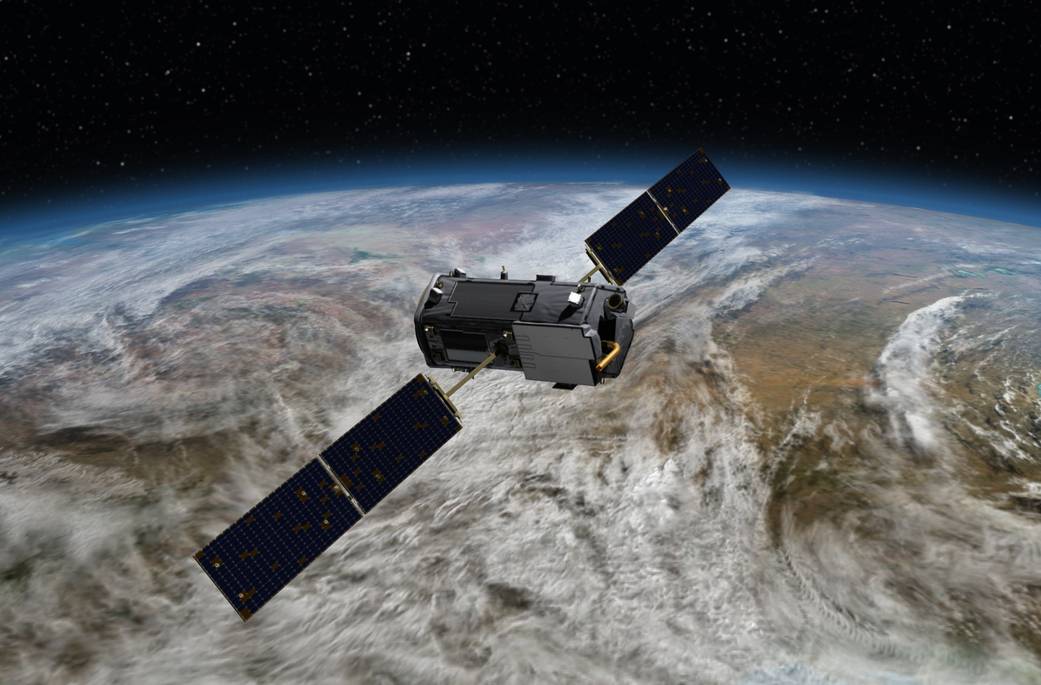Will President Trump quash scientific progress in America?
A sober analysis of what programs will likely survive the Trump administration — and what's on the chopping block


A free daily email with the biggest news stories of the day – and the best features from TheWeek.com
You are now subscribed
Your newsletter sign-up was successful
The election of Donald Trump has the global scientific community in panic mode.
"I am simply stunned," Neal Lane, a Democrat who led the National Science Foundation and served as White House science adviser under President Bill Clinton, told Science. "Trump's election does not bode well for science or most anything else of value." Recently, a group of more than 2,000 scientists wrote an open letter imploring the president-elect not to neglect scientific inquiry during his tenure.
Much of this panic stems from Trump's perceived lack of interest in science and fact-based evidence. After all, this is a man who once called climate change a "hoax" created by the Chinese. But what could a Trump presidency actually mean for scientific progress in America? After reviewing his statements and speaking with a handful of scientists, here's our best guess.
The Week
Escape your echo chamber. Get the facts behind the news, plus analysis from multiple perspectives.

Sign up for The Week's Free Newsletters
From our morning news briefing to a weekly Good News Newsletter, get the best of The Week delivered directly to your inbox.
From our morning news briefing to a weekly Good News Newsletter, get the best of The Week delivered directly to your inbox.
The good
No single policy or area of research is going to come to a screeching halt when Trump is sworn in on Jan. 20, 2017. Policies have "a certain amount of inertia," said Rush Holt, CEO of the American Association for the Advancement of Science, in a recent webinar. "Programs that start[ed before Trump] will continue. There will be support for these programs beyond President Obama's own office. The public cares about these things. Even an anti-establishment president-elect is not going to thumb his nose at the public."
One program that's likely to continue, for example, is Cancer Moonshot, which, as the National Cancer Institute explains, "aims to make more therapies available to more patients, while also improving our ability to prevent cancer and detect it at an early stage." It's got a definable goal, lots of public support, and the resources of other federal agencies behind it, so it's likely to continue under the Trump administration.
Most medical research is also likely to continue under President Trump, says Bart Gordon of law firm K&L Gates. Medical research, and academic research in general, might actually benefit from relaxed regulations in university funding. "Right now, there's lots of compliance regulations placed on university funding. Thirty percent or more [of research budgets] go to compliance. The Trump administration will probably cut those, and that might put more money into [research] funding."
A free daily email with the biggest news stories of the day – and the best features from TheWeek.com
Space travel might also benefit from the Trump administration. As Mark Jackson, CEO of science crowdfunding platform FiatPhysica, told The Week, "Trump has commented that he supports space exploration, so there may be a focus on human spaceflight. But this will likely be in the form of private partnerships, not outright government funding."
The bad
Trump's big plans for deep space exploration may sound cool, but they could come at the expense of what his advisers have called "politically correct" environmental monitoring — aka climate change research here on Earth. Trump will most likely eliminate funding for NASA's Earth Sciences division. "We see NASA in an exploration role, in deep space research," senior Trump adviser Bob Walker told The Guardian. "Earth-centric science is better placed at other agencies where it is their prime mission."
Aside from profoundly misunderstanding NASA's mission to "reach for new heights and reveal the unknown for the benefit of humankind," Trump's gutting of the agency's Earth Sciences division "will be a disaster for humanity," writes Slate's Phil Plait.
NASA is the leading agency in studying the effects of global warming on the planet, in measuring the changes in our atmosphere, our oceans, the weather, and yes, the climate as temperatures increase. They have a fleet of spacecraft observing the Earth, and plans for more to better understand our environment. That's all on the chopping block now. [Phil Plait]
As devastating as that would be, the possible appointment of climate change denier Myron Ebell as the head of the Environmental Protection Agency could be even worse. "Having an EPA director who doesn't believe climate change exists is like having a secretary of state who doesn't believe foreign countries exist," FiatPhysica's Jackson explains. "It's not that we disagree on details but could negotiate for an acceptable compromise; they don't even accept the reality needed to form a policy in the first place."
While countries can't pull out of the Paris climate accord without a four-year notice, "you can stop the executive orders working towards its solutions," says K&L Gates' Gordon. "You can also not fund it. Or not try to enforce it. Then there are the executive orders, which will get reviewed. [An order] like 'all vehicles and buildings must be eco-friendly' could go."
Other areas of scientific research that could be in trouble under President Trump include biomedical research related to human stem cells and research disproving vaccines cause autism. (In 2012, Trump tweeted: "Lots of autism and vaccine response. Stop these massive doses immediately. Go back to single, spread out shots! What do we have to lose.")
Learning from the past
All of these policies could have consequences on America's future scientific prospects for years to come. "The reason the U.S.A. has been so innovative and earned so many Nobel Prizes is because politicians of all backgrounds could at least agree on advancing science, and welcomed the most talented scientists," Jackson told The Week. "The climate of funding uncertainty and hostility to foreigners means that the smartest scientists will no longer come to the U.S.A."
To better understand how Trump might influence the future of our country, it's worth looking back at some of the less scientifically inclined presidents who came before him.
President George W. Bush was not as vociferously anti-science as Trump, but he was similarly unenlightened about its importance. Bush restricted federal funding for research on stem cells obtained from human embryos in 2001, undermining research to potentially cure "diseases such as diabetes, heart disease, and Parkinson's," TIME writes. This was undone in 2009, when President Obama lifted the ban, allowing scientists to develop and test new drugs for a variety of ailments including heart disease and spinal cord injuries.
President Bush also allowed other areas of scientific discovery to languish, cutting America's leadership on a global scale. Pran Nath, a particle physicist at Northeastern University, told LiveScience that America lost its leadership in particle physics under President Bush, "leaving Europe and Japan to assume leadership role in this area."
Physics magazine Symmetry makes another good point: It could have been America that built the Large Hadron Collider and discovered the Higgs Boson particle, beginning an age of unprecedented discovery into the universe's dark matter and anti-matter. Instead, due to President Bush's administration not advocating funds toward physics research, the European Organization for Nuclear Research (CERN) made all those discoveries and became the world leader in that arena.
The largest area of research that lapsed under President Bush, however, is the one that stands to suffer the most under President Trump: climate change. "The [Bush] administration contributed egregiously to the false impression (among the public) of a scientific 'debate' about the existence and causes of global warming," Joshua Hart, a psychologist at Union College in New York, told LiveScience. That "debate" is the foundation of climate change denial touted by Trump, Ebell, and the majority of the incoming administration.
Jackson has some last advice for researchers before the Trump administration takes office: "If you are scientist, begin seeking private funding. From today onwards, scientists will have to be completely self-sufficient and not assume they will receive any government support."
Laurie Vazquez is a science and tech writer whose work has appeared in Popular Science, Big Think, TIME, and other publications. She's also a children's author and playwright.
